News and Site Updates Archive 2009/08/16
Imagination compensates man for what he is not; a sense of humour consoles man for what he is.
- Francis Bacon
 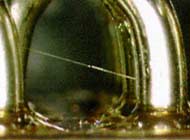 16 Aug '09 - When people first started building electric
circuits, they used tin metal to solder the interconnections between the copper bits. But they soon noticed that the tin would get "furry", growing spiky whiskers as the part was used. These spikes could grow long enough to short circuits but were weak enough that
they would break off immediately after. A smart metallurgist figured out that a bit of lead in the tin alloy stopped this behaviour. The electronics industry grew; electronic circuits became small,
fast and reliable; they are now found in nearly every control system – with a bit of solder in each one. In the early 2000s two things happened: Europe began prohibiting lead in consumer products and
simultaneously the production of interconnection technologies went global. Though only European markets banned lead, producers worldwide complied. Consumers all over now buy lead-free electronics,
often without knowing. Many times the same part number starts showing up with lead-free solder. The whisker problem has now been encountered on the Space Shuttle, in nuclear power plants - and
could perhaps be involved metro crashes or even plane crashes. In 2006, a huge batch of Swatch watches, made by the eponymous Swiss company, were recalled at an estimated cost of US$1 billion (£500
million). Tin whiskers - those microscopic growths of metal due to compressive stress - were
blamed. The US military blamed them for malfunctioning F-15 radar systems and misguided Phoenix and Patriot missiles. In 1986, the US Food and Drug Administration recalled a number of pacemakers
because of these same whiskers. In fact, they've been known about since the 1940s, and happen with cadmium and zinc, too: during the second world war, similar whiskers shorted the cadmium tuning
capacitors in aircraft radios. A decade later, tin-based relays in AT&T telephone switching centres were found to cause shorts. When your computer stops working, could that be the
cause? Certainly, some in the computer industry think. One whisker can carry about 30mA - more than enough to wreak havoc in digital circuits. 16 Aug '09 - When people first started building electric
circuits, they used tin metal to solder the interconnections between the copper bits. But they soon noticed that the tin would get "furry", growing spiky whiskers as the part was used. These spikes could grow long enough to short circuits but were weak enough that
they would break off immediately after. A smart metallurgist figured out that a bit of lead in the tin alloy stopped this behaviour. The electronics industry grew; electronic circuits became small,
fast and reliable; they are now found in nearly every control system – with a bit of solder in each one. In the early 2000s two things happened: Europe began prohibiting lead in consumer products and
simultaneously the production of interconnection technologies went global. Though only European markets banned lead, producers worldwide complied. Consumers all over now buy lead-free electronics,
often without knowing. Many times the same part number starts showing up with lead-free solder. The whisker problem has now been encountered on the Space Shuttle, in nuclear power plants - and
could perhaps be involved metro crashes or even plane crashes. In 2006, a huge batch of Swatch watches, made by the eponymous Swiss company, were recalled at an estimated cost of US$1 billion (£500
million). Tin whiskers - those microscopic growths of metal due to compressive stress - were
blamed. The US military blamed them for malfunctioning F-15 radar systems and misguided Phoenix and Patriot missiles. In 1986, the US Food and Drug Administration recalled a number of pacemakers
because of these same whiskers. In fact, they've been known about since the 1940s, and happen with cadmium and zinc, too: during the second world war, similar whiskers shorted the cadmium tuning
capacitors in aircraft radios. A decade later, tin-based relays in AT&T telephone switching centres were found to cause shorts. When your computer stops working, could that be the
cause? Certainly, some in the computer industry think. One whisker can carry about 30mA - more than enough to wreak havoc in digital circuits.
  Throughout history, the general population has been ruled by the rich and powerful. I think the reason political candidates "believe in god" is to perpetrate a myth - a gullible populace is
easier to lead and persons who accept magical thinking are manipulable. (If it works, why not?) What's the difference between
a kindergarten teacher and a governor who quits mid-term? One has actual responsibilities!... In efforts to
avoid "medical losses" (the industry term for having to pay a client's medical bills), insurers spend much of the money taken in through premiums not on treatment, but on "underwriting" — screening out
those likely to make claims. In the individual insurance market where people buy insurance directly rather than getting it through employers, so much money goes into underwriting and other expenses that
only around 70 cents of each premium dollar goes to care. (Insurance companies are businesses, not charities, after all.) Still, most Americans under 65 have some form of private insurance, though
the vast majority don’t buy it directly: they get it through employers. There’s a tax advantage to doing it that way, since employer contributions to health care reduce taxable income. But to get that
advantage employers follow a number of rules; roughly speaking, they can’t discriminate based on pre-existing medical conditions or restrict benefits only to highly-paid employees. The problem with
private insurance is that companies attempt to offset losses due to those rules by overcharging/overscreening less-regulated policies. There is no free lunch! If everyone gets insurance, everyone
pays. For better coverage, pay an additional amount for a private policy and be treated in private facilities - it seems to work in New Zealand.
Throughout history, the general population has been ruled by the rich and powerful. I think the reason political candidates "believe in god" is to perpetrate a myth - a gullible populace is
easier to lead and persons who accept magical thinking are manipulable. (If it works, why not?) What's the difference between
a kindergarten teacher and a governor who quits mid-term? One has actual responsibilities!... In efforts to
avoid "medical losses" (the industry term for having to pay a client's medical bills), insurers spend much of the money taken in through premiums not on treatment, but on "underwriting" — screening out
those likely to make claims. In the individual insurance market where people buy insurance directly rather than getting it through employers, so much money goes into underwriting and other expenses that
only around 70 cents of each premium dollar goes to care. (Insurance companies are businesses, not charities, after all.) Still, most Americans under 65 have some form of private insurance, though
the vast majority don’t buy it directly: they get it through employers. There’s a tax advantage to doing it that way, since employer contributions to health care reduce taxable income. But to get that
advantage employers follow a number of rules; roughly speaking, they can’t discriminate based on pre-existing medical conditions or restrict benefits only to highly-paid employees. The problem with
private insurance is that companies attempt to offset losses due to those rules by overcharging/overscreening less-regulated policies. There is no free lunch! If everyone gets insurance, everyone
pays. For better coverage, pay an additional amount for a private policy and be treated in private facilities - it seems to work in New Zealand.
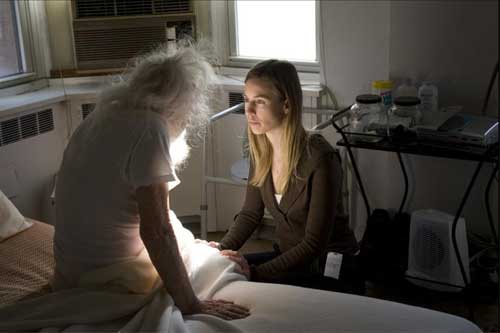 |
Dr Ana Blohm is part of the Mount Sinai Visiting Doctors Program in Manhattan, which serves over 1,000 patients who find it difficult to leave their homes. When Dr Blohm meets
new patients, she spends time getting acquainted with them to learn their conditions, mental state and current medications. Arthur, for example, has never left his apartment in the 3 years Dr
Blohm has visited. He has severe depression and is unmotivated. Before she examines him, she talks with him to understand his mental state. She has time to see only 4 - 5 patients
in a typical day. (See Ed Kashi, Photo Essays section: "Doctor in the House" selection.)
Should everyone be treated like this? Who would pay for it? While care is far from free, some benefits are invaluable. But magical thinking must be set aside. All insurance
does is spread the costs around. The costs are still there and must be paid. Answers are not easy. |
  "Moving into
Christmas again. No girlfriend since 1984 - who knows why. I'm not ugly or too weird. No sex since July 1990 either (I was 29 - over 18 years ago). And did it maybe only 50 - 75
times in my life. I actually look good. I dress well, am clean-shaven, bathe, touch of cologne - yet 30 million women reject me (my rough guesstimate of how many desirable single women there
are). A man needs a woman for confidence. He gets a boost on the job, career and with other men when he knows inside he has someone to spend the night with. This type of life I see is a
world with me specifically and totally excluded. Every other guy does this successfully to a degree. Flying solo for many years is a destroyer. My dad never (not once) asked about my life's
details. [My] brother would try to embarrass me when pursuing girls early on (teen years). Young women were brutal when I was young, now they aren't as much, probably because they just see me as
another old man. Mum - Central Boss - don't piss her off or she'll be vindictive for years. She actually thinks she's normal. People outside the immediate family like her. Why are
people vicious with their closest ones? Why should I continue another 20+ years alone? I'll just work, come home, eat, maybe do something, then go to bed (alone) for the next day of the same
thing. I never even spent one weekend with a girl in my life. I don't have kids, close friends or anything - just me. I always hoped maybe things would improve especially if I change my
life. I made many big changes in the past 2 years but everything is still the same even though I look good, dress well, well groomed - nails, teeth, hair, etc. Makes me realise how TOTALLY
ISOLATED I am. Net worth slightly more than $250,000 (after all debt) as of end of 2008." - Excerpts from gym killer George Sodini's blog. He says no woman would look at him twice, but reveals
dates as recent as May 2009 (with a woman he met on the bus) and also a year earlier. He speaks of a "hot" woman sending him email and a woman at the gym possibly interested. He's invited to
picnics and parties. Clearly, opportunity came his way - nevertheless, throughout his blog entries, he plays victim. With each positive event - date, raise, promotion - nothing was good
enough. He had an enormous sense of self-entitlement and rage. Women were for sex. He repeatedly mentioned how good he looked, how fit he was and closed the book of his life with how
much money he had. What choices existed in this man's life? You only choose among options you can see as available. Sad all around... The Sukhoi T-4, or "Sotka" was a Soviet high-speed reconnaissance, anti-ship and strategic bomber aircraft that did not proceed beyond the prototype
stage. Pictured is the test pilot, Vladimir Ilyushin. The aircraft was designed to achieve speeds of up to Mach 3.0, but the programme was cancelled 22 January 1974 before full performance could
be reached. One T-4 survives today on display at the Monino Museum near Moscow. For some reason, I found the picture æsthetically appealing. "Moving into
Christmas again. No girlfriend since 1984 - who knows why. I'm not ugly or too weird. No sex since July 1990 either (I was 29 - over 18 years ago). And did it maybe only 50 - 75
times in my life. I actually look good. I dress well, am clean-shaven, bathe, touch of cologne - yet 30 million women reject me (my rough guesstimate of how many desirable single women there
are). A man needs a woman for confidence. He gets a boost on the job, career and with other men when he knows inside he has someone to spend the night with. This type of life I see is a
world with me specifically and totally excluded. Every other guy does this successfully to a degree. Flying solo for many years is a destroyer. My dad never (not once) asked about my life's
details. [My] brother would try to embarrass me when pursuing girls early on (teen years). Young women were brutal when I was young, now they aren't as much, probably because they just see me as
another old man. Mum - Central Boss - don't piss her off or she'll be vindictive for years. She actually thinks she's normal. People outside the immediate family like her. Why are
people vicious with their closest ones? Why should I continue another 20+ years alone? I'll just work, come home, eat, maybe do something, then go to bed (alone) for the next day of the same
thing. I never even spent one weekend with a girl in my life. I don't have kids, close friends or anything - just me. I always hoped maybe things would improve especially if I change my
life. I made many big changes in the past 2 years but everything is still the same even though I look good, dress well, well groomed - nails, teeth, hair, etc. Makes me realise how TOTALLY
ISOLATED I am. Net worth slightly more than $250,000 (after all debt) as of end of 2008." - Excerpts from gym killer George Sodini's blog. He says no woman would look at him twice, but reveals
dates as recent as May 2009 (with a woman he met on the bus) and also a year earlier. He speaks of a "hot" woman sending him email and a woman at the gym possibly interested. He's invited to
picnics and parties. Clearly, opportunity came his way - nevertheless, throughout his blog entries, he plays victim. With each positive event - date, raise, promotion - nothing was good
enough. He had an enormous sense of self-entitlement and rage. Women were for sex. He repeatedly mentioned how good he looked, how fit he was and closed the book of his life with how
much money he had. What choices existed in this man's life? You only choose among options you can see as available. Sad all around... The Sukhoi T-4, or "Sotka" was a Soviet high-speed reconnaissance, anti-ship and strategic bomber aircraft that did not proceed beyond the prototype
stage. Pictured is the test pilot, Vladimir Ilyushin. The aircraft was designed to achieve speeds of up to Mach 3.0, but the programme was cancelled 22 January 1974 before full performance could
be reached. One T-4 survives today on display at the Monino Museum near Moscow. For some reason, I found the picture æsthetically appealing.
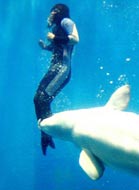 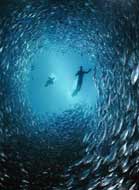 Man's relationship with cetaceans has always been
problematic. For generations we ate them, used their oil to light streets, their whalebone to stiffen corsets, their sinews to string tennis rackets. Until the 60s, Britain was a whaling
nation. Our elders wore make-up made from whales or shoes tanned with whale oil. Gardens were fertilised by whales. Cars, clocks and trains were lubricated by whale oil. If you were
born in the 60s or before, you probably ate whale in the form of margarine. Even now, the space telescope Hubble and the Voyager space probe are spinning into space, oiled by whales (no substitute
could be found for whale oil, which does not freeze in outer space). The drowning diver at left was saved by a beluga whale, which lifted her to the surface when she got into difficulties during a
free-diving competition at a water park. The suspicion of a causal relationship between whale strandings
and either seismic tests or the use of new high-tech sonar tracking devices in military-training exercises is mounting. Strandings have been noted off the coasts of Brazil, the Bahamas, the Galápagos
Islands, the US Virgin Islands and Japan, as well as in waters off Italy and Greece. Necropsies performed on a number of whales reveal lesions about the brains and ears. Scientists have also
found lesions in livers, lungs and kidneys, as well as nitrogen bubbles in organs and tissue, all classic symptoms of a sickness to which scientists assumed whales would be immune: the
bends. Unfortunately, the US Supreme Court, in a 6-to-3 decision, ruled bans could jeopardise the safety of the US submarine fleet and sacrifice public interest in military preparedness by "forcing the
Navy to deploy an inadequately trained antisubmarine force." Chief Justice Roberts went on to dismissively minimise the issue of harm to marine life: "...the most serious possible injury would be harm
to an unknown number of marine animals." This is sadly shortsighted... "We were diving on the reef, quite happily looking around at all the interesting fish, when suddenly everything went
dark. It was like a cloud had fallen over us - at first I thought it was the sun going in. But within seconds I realised it was this huge mass of sardines swirling around us. They looked like an
impenetrable wall, but you could actually immerse inside the coil while they whirled around you. It was absolutely incredible, I've never seen anything like it. It was a silver, shimmering
cloud - very disorienting to be inside - almost like having vertigo. I have been diving for years and seen many shoals of fish, but everything else pales in comparison." - American diver Erwin
Poliakoff Man's relationship with cetaceans has always been
problematic. For generations we ate them, used their oil to light streets, their whalebone to stiffen corsets, their sinews to string tennis rackets. Until the 60s, Britain was a whaling
nation. Our elders wore make-up made from whales or shoes tanned with whale oil. Gardens were fertilised by whales. Cars, clocks and trains were lubricated by whale oil. If you were
born in the 60s or before, you probably ate whale in the form of margarine. Even now, the space telescope Hubble and the Voyager space probe are spinning into space, oiled by whales (no substitute
could be found for whale oil, which does not freeze in outer space). The drowning diver at left was saved by a beluga whale, which lifted her to the surface when she got into difficulties during a
free-diving competition at a water park. The suspicion of a causal relationship between whale strandings
and either seismic tests or the use of new high-tech sonar tracking devices in military-training exercises is mounting. Strandings have been noted off the coasts of Brazil, the Bahamas, the Galápagos
Islands, the US Virgin Islands and Japan, as well as in waters off Italy and Greece. Necropsies performed on a number of whales reveal lesions about the brains and ears. Scientists have also
found lesions in livers, lungs and kidneys, as well as nitrogen bubbles in organs and tissue, all classic symptoms of a sickness to which scientists assumed whales would be immune: the
bends. Unfortunately, the US Supreme Court, in a 6-to-3 decision, ruled bans could jeopardise the safety of the US submarine fleet and sacrifice public interest in military preparedness by "forcing the
Navy to deploy an inadequately trained antisubmarine force." Chief Justice Roberts went on to dismissively minimise the issue of harm to marine life: "...the most serious possible injury would be harm
to an unknown number of marine animals." This is sadly shortsighted... "We were diving on the reef, quite happily looking around at all the interesting fish, when suddenly everything went
dark. It was like a cloud had fallen over us - at first I thought it was the sun going in. But within seconds I realised it was this huge mass of sardines swirling around us. They looked like an
impenetrable wall, but you could actually immerse inside the coil while they whirled around you. It was absolutely incredible, I've never seen anything like it. It was a silver, shimmering
cloud - very disorienting to be inside - almost like having vertigo. I have been diving for years and seen many shoals of fish, but everything else pales in comparison." - American diver Erwin
Poliakoff
  The idea that solar cycles are related to
climate is hard to fit with the actual change in energy output from the sun from solar maximum to solar minimum - energy output drops a minuscule 0.1%. But the overlap of the Maunder Minimum with the
Little Ice Age, when Europe experienced unusually cold weather, suggests the solar cycle may have more subtle climate influences. One possibility is high-energy interstellar particles known as cosmic
rays, which slam into the atmosphere, break air molecules into ions and electrons, and cause water and sulphuric acid in the air to stick together in tiny droplets. These droplets are seeds that can grow
into sunlight-reflecting clouds, thus lowering temperatures. The sun influences their numbers: if the sun is frenetic, the solar wind of charged particles it spews out increases, expanding the cocoon of
magnetic fields, deflecting more cosmic rays. But observations are inconsistent. So, what's going on with the sun and its missing spots and what does this mean for global warming? NJIT
distinguished professor of physics Philip R Goode is the heart, soul and director of Big Bear Solar Observatory (BBSO) since NJIT took
over management in 1997 from California Institute of Technology. Each pearl in the string of pearls visible in the centre of the photo at right is a cross-section of an intense, single fibre of the
sun's magnetic field - the basic building block of solar magnetism. The sun is now in a state of prolonged magnetic inactivity, perhaps the longest such time in a century... A team of physicists
from the universities of Cambridge and Birmingham have shown that electrons in narrow wires can divide into two new
particles called spinons and a holons. The electron is a fundamental building block of nature and indivisible in isolation, yet an experiment has shown that electrons, if crowded into narrow wires,
split. Excuse me? Though "electrons seem to have no size or shape and are impossible to break apart", apparently if they get too close to each other, they just go to pieces. Wow. And
what might this mean? The idea that solar cycles are related to
climate is hard to fit with the actual change in energy output from the sun from solar maximum to solar minimum - energy output drops a minuscule 0.1%. But the overlap of the Maunder Minimum with the
Little Ice Age, when Europe experienced unusually cold weather, suggests the solar cycle may have more subtle climate influences. One possibility is high-energy interstellar particles known as cosmic
rays, which slam into the atmosphere, break air molecules into ions and electrons, and cause water and sulphuric acid in the air to stick together in tiny droplets. These droplets are seeds that can grow
into sunlight-reflecting clouds, thus lowering temperatures. The sun influences their numbers: if the sun is frenetic, the solar wind of charged particles it spews out increases, expanding the cocoon of
magnetic fields, deflecting more cosmic rays. But observations are inconsistent. So, what's going on with the sun and its missing spots and what does this mean for global warming? NJIT
distinguished professor of physics Philip R Goode is the heart, soul and director of Big Bear Solar Observatory (BBSO) since NJIT took
over management in 1997 from California Institute of Technology. Each pearl in the string of pearls visible in the centre of the photo at right is a cross-section of an intense, single fibre of the
sun's magnetic field - the basic building block of solar magnetism. The sun is now in a state of prolonged magnetic inactivity, perhaps the longest such time in a century... A team of physicists
from the universities of Cambridge and Birmingham have shown that electrons in narrow wires can divide into two new
particles called spinons and a holons. The electron is a fundamental building block of nature and indivisible in isolation, yet an experiment has shown that electrons, if crowded into narrow wires,
split. Excuse me? Though "electrons seem to have no size or shape and are impossible to break apart", apparently if they get too close to each other, they just go to pieces. Wow. And
what might this mean?
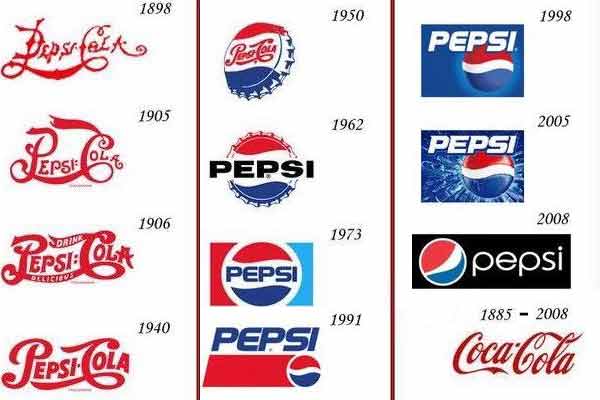
The power of consistency - some things never change.
  View from the 52nd floor of the Mori Tower in Roponggi, Tokyo (Tamjpn). Another day, another
photographer (Gullevek). This place much have been designed with photographers in mind... A fascinating site that
reports on topics written about in the Wall Street Journal from 79 years ago. View from the 52nd floor of the Mori Tower in Roponggi, Tokyo (Tamjpn). Another day, another
photographer (Gullevek). This place much have been designed with photographers in mind... A fascinating site that
reports on topics written about in the Wall Street Journal from 79 years ago.  From the 6 August 1930 edition: The current Bell (AT&T) phone system connects 18 million telephones by cable and wire in the US, Eastern Canada, British Columbia, and Cuba. By use of
radio links, any Bell system phone can now connect to about 30 million of the world's 34.5 million phones in 25 countries (including most of Europe and parts of South America and Africa) and to several ocean
liners at sea. US and Europe are connected by 4 radio channels and so can have 4 simultaneous conversations (this is unfathomable today). The first transatlantic phone link was US to London
on 7 January 1927; the rate for a 3-minute conversation was $75. The year 1927 saw an average of 7 calls per day; in 1928 this increased to 31 per day - due to more areas having been added and the price
being cut to $45. Calls were about 50/50 social and business. Plans by 1932 include a transatlantic cable to increase reliability and transpacific radio service to Hawaii and
Asia. From the 6 August 1930 edition: The current Bell (AT&T) phone system connects 18 million telephones by cable and wire in the US, Eastern Canada, British Columbia, and Cuba. By use of
radio links, any Bell system phone can now connect to about 30 million of the world's 34.5 million phones in 25 countries (including most of Europe and parts of South America and Africa) and to several ocean
liners at sea. US and Europe are connected by 4 radio channels and so can have 4 simultaneous conversations (this is unfathomable today). The first transatlantic phone link was US to London
on 7 January 1927; the rate for a 3-minute conversation was $75. The year 1927 saw an average of 7 calls per day; in 1928 this increased to 31 per day - due to more areas having been added and the price
being cut to $45. Calls were about 50/50 social and business. Plans by 1932 include a transatlantic cable to increase reliability and transpacific radio service to Hawaii and
Asia.  From the 8 August 1930 edition: Margaret and Mary Gibbs lose a decision to White Star Line; they had attempted to book
single ticket on the Majestic liner to Europe on the grounds that they are Siamese twins. Sanitary single-use lipsticks are now available, coming in a small matchbook-like container. The Census
Bureau reports the US population as of 1 April is 122,698,000 up from 107,509,000 in 1920. All states but Montana increased, the most being California 65.5% to 5,672,000; Florida 51.4% to 1,467,000; New
York up 21.5% to 12,620,000. From the 8 August 1930 edition: Margaret and Mary Gibbs lose a decision to White Star Line; they had attempted to book
single ticket on the Majestic liner to Europe on the grounds that they are Siamese twins. Sanitary single-use lipsticks are now available, coming in a small matchbook-like container. The Census
Bureau reports the US population as of 1 April is 122,698,000 up from 107,509,000 in 1920. All states but Montana increased, the most being California 65.5% to 5,672,000; Florida 51.4% to 1,467,000; New
York up 21.5% to 12,620,000.  11 August: Charles Lindbergh predicts regular overseas plane traffic within the next few years and
calls for uniform flying regulations around the world. King Feisal of Iraq arrives in Berlin to negotiate for equipment to help open Mosul oilfields and construct a 700-mile pipeline to the Mediterranean
through Syria. 11 August: Charles Lindbergh predicts regular overseas plane traffic within the next few years and
calls for uniform flying regulations around the world. King Feisal of Iraq arrives in Berlin to negotiate for equipment to help open Mosul oilfields and construct a 700-mile pipeline to the Mediterranean
through Syria.  12 August: A strange dispute between France and Britain involves gold shipments required by gold-backed
currency. Conditions have been such that Britain has been required to ship large amounts of gold to France. Britain says it will only ship "standard" gold bars (91.6% gold) instead of "fine" bars
(99.5%). France is unwilling to accept them since refining standard into fine bars is expensive; "it would be wiser for nations, when establishing the 'gold-bullion' standard, to define what they mean
by 'gold bullion.'" 12 August: A strange dispute between France and Britain involves gold shipments required by gold-backed
currency. Conditions have been such that Britain has been required to ship large amounts of gold to France. Britain says it will only ship "standard" gold bars (91.6% gold) instead of "fine" bars
(99.5%). France is unwilling to accept them since refining standard into fine bars is expensive; "it would be wiser for nations, when establishing the 'gold-bullion' standard, to define what they mean
by 'gold bullion.'"
  Ron Mueck is an Australian hyper-realist sculptor working in the
UK; his work is characterised by attention to detail, technical brilliance and odd scale - while proportionally correct, it is either oversized or undersized. The seated woman was completed in 1999 of
mixed media; she is just over 2 feet tall. One of his stranger works is entitled "Dead Dad" (image) - a
rather haunting silicone and mixed media sculpture of the corpse of Mueck's father, reduced to about 2/3 natural scale. It is the only work of Mueck's that uses his own hair for the finished
product... In Vancouver, Canada advertising agency Rethink Communications (who have a decent but very minimalist website)
prepped a bus shelter advertisement space with a 3M product called Scotchshield, a see-through film that
can be applied to glass to make it near bullet proof; the site was filled with lots of play money and $500 real Canadian dollars were spread out on top. Passersby did their best to breach the
Scotchshield by kicking and hitting the glass, but it withstood them all. It's a shame one couldn't say the same about the aluminium frame; after it was breached, security guards had to call timeout as
that was considered cheating... The Top Gear boys were deeply offended by a fan letter claiming that they don't review cars properly anymore. To compensate, Jeremy Clarkson took the new Ford Fiesta
for an extraordinary road test including a car chase inside a shopping centre and a Royal-Marine-assisted beach assault. Perhaps the
most memorable review a Ford Fiesta ever got... Civilization is a video mural created for the new Standard Hotel in New
York City; it depicts a journey from hell to heaven interpreted through modern film language using computer-enhanced video clips from films. This epic video mural contains over 300 individual channels of
looped video blended into a multi-layered seamless tableau of interconnecting images to illustrate a contemporary, satirical take on the concepts of Heaven and Hell. I don't particularly like this
instance (nor its subject matter) but I quite like the concept and would like the opportunity to try designing one myself someday. Ron Mueck is an Australian hyper-realist sculptor working in the
UK; his work is characterised by attention to detail, technical brilliance and odd scale - while proportionally correct, it is either oversized or undersized. The seated woman was completed in 1999 of
mixed media; she is just over 2 feet tall. One of his stranger works is entitled "Dead Dad" (image) - a
rather haunting silicone and mixed media sculpture of the corpse of Mueck's father, reduced to about 2/3 natural scale. It is the only work of Mueck's that uses his own hair for the finished
product... In Vancouver, Canada advertising agency Rethink Communications (who have a decent but very minimalist website)
prepped a bus shelter advertisement space with a 3M product called Scotchshield, a see-through film that
can be applied to glass to make it near bullet proof; the site was filled with lots of play money and $500 real Canadian dollars were spread out on top. Passersby did their best to breach the
Scotchshield by kicking and hitting the glass, but it withstood them all. It's a shame one couldn't say the same about the aluminium frame; after it was breached, security guards had to call timeout as
that was considered cheating... The Top Gear boys were deeply offended by a fan letter claiming that they don't review cars properly anymore. To compensate, Jeremy Clarkson took the new Ford Fiesta
for an extraordinary road test including a car chase inside a shopping centre and a Royal-Marine-assisted beach assault. Perhaps the
most memorable review a Ford Fiesta ever got... Civilization is a video mural created for the new Standard Hotel in New
York City; it depicts a journey from hell to heaven interpreted through modern film language using computer-enhanced video clips from films. This epic video mural contains over 300 individual channels of
looped video blended into a multi-layered seamless tableau of interconnecting images to illustrate a contemporary, satirical take on the concepts of Heaven and Hell. I don't particularly like this
instance (nor its subject matter) but I quite like the concept and would like the opportunity to try designing one myself someday.
  Creative
doormats... This shimmering giant, thought to be the world's largest free-floating soap bubble, was created with a
piece of rope between two sticks and a top secret bubble solution. Sam Heath's bubble is 20 feet by 5 feet at its biggest. He's refused to divulge his secret bubble recipe saying it is the key to
his success... Suppose you are told you must marry, and that
you must choose your spouse out of 100 applicants. You may interview each applicant once. After each interview you must decide whether to marry that person. If you decline, you lose the
opportunity forever. If you work your way through 99 applicants without choosing one, you must marry the 100th. You may think you have a 1 in 100 chance of marrying your ideal partner, but the
truth is that you can do a lot better than that. If you interview half the potential partners then stop at the next best one - that is, the first one better than the best person you've already
interviewed - you will marry the very best candidate about 25% of the time. Once again, probability explains why. A quarter of the time, the second best partner will be in the first 50 people and
the very best in the second. So 25% of the time, the rule "stop at the next best one" will see you marrying the best candidate. Much of the rest of the time, you will end up marrying the 100th
person (who has a 1 in 100 chance of being the worst). You could raise your odds to 37% by interviewing 37 people then stopping at the next best. The number 37 comes from dividing 100 by e, the
base of the natural logarithms, roughly equal to 2.72. This works no matter how many candidates there are - simply divide the number of options by e (that is, for 50 options, you would take the best
option after checking the first 18). But be aware that if options are presented to you in reverse order - best first - then you'll fail. Creative
doormats... This shimmering giant, thought to be the world's largest free-floating soap bubble, was created with a
piece of rope between two sticks and a top secret bubble solution. Sam Heath's bubble is 20 feet by 5 feet at its biggest. He's refused to divulge his secret bubble recipe saying it is the key to
his success... Suppose you are told you must marry, and that
you must choose your spouse out of 100 applicants. You may interview each applicant once. After each interview you must decide whether to marry that person. If you decline, you lose the
opportunity forever. If you work your way through 99 applicants without choosing one, you must marry the 100th. You may think you have a 1 in 100 chance of marrying your ideal partner, but the
truth is that you can do a lot better than that. If you interview half the potential partners then stop at the next best one - that is, the first one better than the best person you've already
interviewed - you will marry the very best candidate about 25% of the time. Once again, probability explains why. A quarter of the time, the second best partner will be in the first 50 people and
the very best in the second. So 25% of the time, the rule "stop at the next best one" will see you marrying the best candidate. Much of the rest of the time, you will end up marrying the 100th
person (who has a 1 in 100 chance of being the worst). You could raise your odds to 37% by interviewing 37 people then stopping at the next best. The number 37 comes from dividing 100 by e, the
base of the natural logarithms, roughly equal to 2.72. This works no matter how many candidates there are - simply divide the number of options by e (that is, for 50 options, you would take the best
option after checking the first 18). But be aware that if options are presented to you in reverse order - best first - then you'll fail.
  The Relámpago del Catatumbo
(Catatumbo lightning) is a phenomenon that occurs over the marshlands at the Catatumbo River mouth in Venezuela where lightning storms continue for up to 10 hours a night, 140 - 160 nights per year (for an
annual total of 1.2 million lightning discharges). The light from this storm activity can be seen up to 400 kilometres away and is used for ship navigation; it is also known as the "Maracaibo Beacon" for
this reason. This cloud storm forms a voltaic arc more than 5 kilometres high. The collision of winds coming off the Andes Mountains with electrical discharges of ionised gases (mainly methane
created by decomposition of organic matter in the marshes) causes the clouds which feed the storms. These thunderstorms create a high percentage of all the ozone produced worldwide - a major regenerator
of the planet's ozone layer, producing approximately 1,176,000 kilowatts of atmospheric electricity annually. Should places crucial to the health of the whole planet be able to be owned and controlled by
a single country? Should there be a world government to the extent that these places could be jointly owned? And it would be composed of whom? No, too political. Who would
police? Defend? Oversee? Decisions would be based on what? Someday, however, we may regret non-vigilance... The Centre for Disease Control and Prevention reports that
about 20 people annually are killed by cows in the US. In some cases, the cows actually attack the
humans — ramming them, knocking them down, goring them, trampling them and kicking them in the head — resulting in fatal injuries to head and chest. One man died after a cow knocked him down and a
syringe in his pocket injected him with antibiotic meant for the cow. In at least one case the animal attacked from behind when the person wasn’t looking... For the bar-headed goose,
migration is a high-altitude adventure. Spring and fall it flies between Central Asia and India, a route that
takes it over the highest mountains in the world, the Himalayas. The bird has been known to reach altitudes of 30,000 feet. At such heights, the air is so thin, there’s only ¼ of the oxygen
available at sea level. Yet the goose is able to sustain the level of consumption — 10 to 20 times normal — needed for flapping flight. How does it do this? (Hint: physical changes in its
muscles.) The Relámpago del Catatumbo
(Catatumbo lightning) is a phenomenon that occurs over the marshlands at the Catatumbo River mouth in Venezuela where lightning storms continue for up to 10 hours a night, 140 - 160 nights per year (for an
annual total of 1.2 million lightning discharges). The light from this storm activity can be seen up to 400 kilometres away and is used for ship navigation; it is also known as the "Maracaibo Beacon" for
this reason. This cloud storm forms a voltaic arc more than 5 kilometres high. The collision of winds coming off the Andes Mountains with electrical discharges of ionised gases (mainly methane
created by decomposition of organic matter in the marshes) causes the clouds which feed the storms. These thunderstorms create a high percentage of all the ozone produced worldwide - a major regenerator
of the planet's ozone layer, producing approximately 1,176,000 kilowatts of atmospheric electricity annually. Should places crucial to the health of the whole planet be able to be owned and controlled by
a single country? Should there be a world government to the extent that these places could be jointly owned? And it would be composed of whom? No, too political. Who would
police? Defend? Oversee? Decisions would be based on what? Someday, however, we may regret non-vigilance... The Centre for Disease Control and Prevention reports that
about 20 people annually are killed by cows in the US. In some cases, the cows actually attack the
humans — ramming them, knocking them down, goring them, trampling them and kicking them in the head — resulting in fatal injuries to head and chest. One man died after a cow knocked him down and a
syringe in his pocket injected him with antibiotic meant for the cow. In at least one case the animal attacked from behind when the person wasn’t looking... For the bar-headed goose,
migration is a high-altitude adventure. Spring and fall it flies between Central Asia and India, a route that
takes it over the highest mountains in the world, the Himalayas. The bird has been known to reach altitudes of 30,000 feet. At such heights, the air is so thin, there’s only ¼ of the oxygen
available at sea level. Yet the goose is able to sustain the level of consumption — 10 to 20 times normal — needed for flapping flight. How does it do this? (Hint: physical changes in its
muscles.)

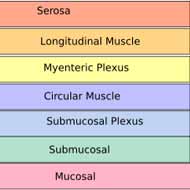 Wallpaper patterns: There are only 17 ways that patterns can repeat on a plane. The pattern
shown is number 11... It has as many as one hundred million neurons, about .1% of the number of neurons in the brain and considerably more than the number in the spinal cord. The
enteric nervous system is embedded in the lining of the gastrointestinal system; its neurons are collected into two types of
ganglia: the myenteric plexus and the submucosal plexus. The enteric nervous system has been described as a "second brain". There are several reasons for this - one is that it can operate
autonomously. Another is that it makes use of more than 30 neurotransmitters, most of which are identical to the ones found in the brain, such as acetylcholine, dopamine, and serotonin. This may
help explain why, for some people, food can be so addictive. Connection to the central nervous
system also means that signals can be relayed to the digestive system: for instance, the sight of appealing food stimulates secretion in the stomach. Conversely,
irritation of the small intestine results in suppression of both secretion and motor activity in the stomach. Perhaps the digestive system has a rudimentary consciousness? A personality of
sorts? Maybe that could explain some instances of our inner conflict - when we feel we're "of two minds". Our digestive system may just be in disagreement with our brain... As well as
regulating the hormones serotonin and melatonin, light has been shown to affect brain blood flow, which has in
turn been linked with cognitive function. Weather may therefore not only affect mood, but also cognition. A lack of sunlight is associated with reduced cognitive function among depressed
people. Falling down? Can't think straight? Go for a walk in the sunshine! Women who have low
activity of the reward neurotransmitter dopamine in the brain when they imagine eating appetising foods are more prone to weight gain. This may provide evidence that people who experience blunted
reward from food may compensate by overeating (in an attempt to increase brain reward in less responsive systems), increasing risk for unhealthy weight gain. But physical activity promotes the same
reward circuitry. Answer? Go for a walk in the sunshine! Losing weight counteracts a depressed mood
and moreover reduces the risk factors for heart disease. Wallpaper patterns: There are only 17 ways that patterns can repeat on a plane. The pattern
shown is number 11... It has as many as one hundred million neurons, about .1% of the number of neurons in the brain and considerably more than the number in the spinal cord. The
enteric nervous system is embedded in the lining of the gastrointestinal system; its neurons are collected into two types of
ganglia: the myenteric plexus and the submucosal plexus. The enteric nervous system has been described as a "second brain". There are several reasons for this - one is that it can operate
autonomously. Another is that it makes use of more than 30 neurotransmitters, most of which are identical to the ones found in the brain, such as acetylcholine, dopamine, and serotonin. This may
help explain why, for some people, food can be so addictive. Connection to the central nervous
system also means that signals can be relayed to the digestive system: for instance, the sight of appealing food stimulates secretion in the stomach. Conversely,
irritation of the small intestine results in suppression of both secretion and motor activity in the stomach. Perhaps the digestive system has a rudimentary consciousness? A personality of
sorts? Maybe that could explain some instances of our inner conflict - when we feel we're "of two minds". Our digestive system may just be in disagreement with our brain... As well as
regulating the hormones serotonin and melatonin, light has been shown to affect brain blood flow, which has in
turn been linked with cognitive function. Weather may therefore not only affect mood, but also cognition. A lack of sunlight is associated with reduced cognitive function among depressed
people. Falling down? Can't think straight? Go for a walk in the sunshine! Women who have low
activity of the reward neurotransmitter dopamine in the brain when they imagine eating appetising foods are more prone to weight gain. This may provide evidence that people who experience blunted
reward from food may compensate by overeating (in an attempt to increase brain reward in less responsive systems), increasing risk for unhealthy weight gain. But physical activity promotes the same
reward circuitry. Answer? Go for a walk in the sunshine! Losing weight counteracts a depressed mood
and moreover reduces the risk factors for heart disease.

 Use of antidepressant drugs in the US
doubled between 1996 and 2005 to more than 10% of the population. This article states that "more than 10%" would be 27 million - when in 2005 that percentage would have exceeded 29 million,
so I don't know if the percentage or the total number is incorrect. Nevertheless, it's an astounding number of people - who are also receiving larger doses than they did in the past. What might
this mean? That drugs help people to meekly accept lives otherwise distasteful? If true, is that a good thing? During this period, those treated with antidepressants were more likely
to additionally receive antipsychotics and less likely to undergo psychotherapy than in the past. Because it's more effective? Not nearly - but rather, cheaper and faster... This
incredible bus stop, designed by Dennis Oppenheim, is located in Ventura California... "It's not like you're on a [Boeing] 747 and can walk around," said Link Christin, a professor at William Mitchell College of Law. "This was a
sardine can, with a single row of seats on one side of the plane and two rows of seats on the other. And they've got about 50 people inside, including babies, for the whole night. It was a
nightmare." A Continental Airlines flight from Houston to the Twin Cities should have arrived in 2½ hours but was diverted to Rochester due to thunderstorms. The airline crew on the plane reached
their maximum work hours in the air, so another crew had to be flown in. The alternative of chartering a bus didn't work out. And letting passengers into the Rochester airport was impossible
because they'd have to go through security screening again and the screeners had gone home for the day. So passengers were confined all night complete with crying babies, no food and the aroma of
over-used toilets. Since the crew had been able to leave, who was monitoring the passengers? One of the fresh crew who had been flown in? Clearly there was little incentive to the airline
here to incur huge expenses to put the passengers up overnight. I was diverted to Cleveland (also by Continental) on my last flight from NY to NZ. We were treated very fairly and given rooms and
meal vouchers, but I was quite surprised that we were forbidden to engage a different flight - we were told we HAD to stay together. What is there about travelling (broken-down trains also refuse to
allow passengers to leave) that causes citizens to lose their basic rights? Use of antidepressant drugs in the US
doubled between 1996 and 2005 to more than 10% of the population. This article states that "more than 10%" would be 27 million - when in 2005 that percentage would have exceeded 29 million,
so I don't know if the percentage or the total number is incorrect. Nevertheless, it's an astounding number of people - who are also receiving larger doses than they did in the past. What might
this mean? That drugs help people to meekly accept lives otherwise distasteful? If true, is that a good thing? During this period, those treated with antidepressants were more likely
to additionally receive antipsychotics and less likely to undergo psychotherapy than in the past. Because it's more effective? Not nearly - but rather, cheaper and faster... This
incredible bus stop, designed by Dennis Oppenheim, is located in Ventura California... "It's not like you're on a [Boeing] 747 and can walk around," said Link Christin, a professor at William Mitchell College of Law. "This was a
sardine can, with a single row of seats on one side of the plane and two rows of seats on the other. And they've got about 50 people inside, including babies, for the whole night. It was a
nightmare." A Continental Airlines flight from Houston to the Twin Cities should have arrived in 2½ hours but was diverted to Rochester due to thunderstorms. The airline crew on the plane reached
their maximum work hours in the air, so another crew had to be flown in. The alternative of chartering a bus didn't work out. And letting passengers into the Rochester airport was impossible
because they'd have to go through security screening again and the screeners had gone home for the day. So passengers were confined all night complete with crying babies, no food and the aroma of
over-used toilets. Since the crew had been able to leave, who was monitoring the passengers? One of the fresh crew who had been flown in? Clearly there was little incentive to the airline
here to incur huge expenses to put the passengers up overnight. I was diverted to Cleveland (also by Continental) on my last flight from NY to NZ. We were treated very fairly and given rooms and
meal vouchers, but I was quite surprised that we were forbidden to engage a different flight - we were told we HAD to stay together. What is there about travelling (broken-down trains also refuse to
allow passengers to leave) that causes citizens to lose their basic rights?
 |
|
Whiplash, a 21-year-old capuchin
monkey, has been performing as a Texas rodeo rider for the past 18 years. He and his current steed, a border collie, round up a herd of sheep for the crowd. Whiplash's owner says his
pet loves his job. The dog doesn't look too unhappy, either. |
 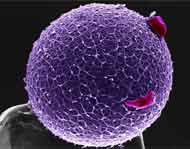 Women who get pregnant while in New
Zealand on temporary residency permits are being told to leave the country to have their babies because of a shortage of maternity services. The women are told they cannot give birth here even if
they pay full medical and maternity care costs. Married international students face removal orders after one becomes pregnant, though in at least one instance the couple had been paying all medical
expenses and had $38,000 in the bank. In the past, some foreigners wanted children to be born in New Zealand to obtain citizenship, but the Citizenship Act was changed in 2006 to require at least one
parent to be a New Zealand citizen for this to happen... Microscopic images from inside the
human body: this colour-enhanced human egg sits on a pin. It's coated with the zona pellicuda, a glycoprotein that protects the egg (to keep it from "breaking") and also helps to trap and bind
sperm. Two coronal (caretaking) cells are attached... You're about to catch a train when a fellow passenger starts to complain of chest pain. Next thing you know he's
collapsed. What do you do? First, call an ambulance. Next, put your hands
in the middle of the chest on the breastbone and push down as hard as you can, 100 times a minute (roughly the same rhythm as the "ah, ah, ah" bit in the Bee Gees song Staying Alive - I'd sing it in
your head, though). Don't worry about doing damage: it's better to be alive with a cracked rib than dead. And that's all you need to carry on doing until the ambulance arrives - unless there's an
automated defibrillator nearby... At any given time, a million people worldwide are in the air... One
in four men in South Africa have admitted to rape and many confess to attacking more than one victim, according to a study that exposes the country's endemic culture of sexual violence. Men were
asked to tap their answers into a Palm Pilot device to guarantee anonymity. This method appears to have produced some unusually frank responses. There seems to exist a gender hierarchy and an idea
that men are sexually entitled. Before his election as president, Jacob Zuma stood trial for the rape of a family friend; he was eventually acquitted. Zuma, a polygamist, was criticised for
emphasising his Zulu tribal identity and singing militant songs during this year's election campaign. The hyper-masculine rhetoric of the Zuma campaign is going to set back work in challenging the old
model of masculinity. A child is raped in South Africa every 3 minutes, with 88% going unreported. Women who get pregnant while in New
Zealand on temporary residency permits are being told to leave the country to have their babies because of a shortage of maternity services. The women are told they cannot give birth here even if
they pay full medical and maternity care costs. Married international students face removal orders after one becomes pregnant, though in at least one instance the couple had been paying all medical
expenses and had $38,000 in the bank. In the past, some foreigners wanted children to be born in New Zealand to obtain citizenship, but the Citizenship Act was changed in 2006 to require at least one
parent to be a New Zealand citizen for this to happen... Microscopic images from inside the
human body: this colour-enhanced human egg sits on a pin. It's coated with the zona pellicuda, a glycoprotein that protects the egg (to keep it from "breaking") and also helps to trap and bind
sperm. Two coronal (caretaking) cells are attached... You're about to catch a train when a fellow passenger starts to complain of chest pain. Next thing you know he's
collapsed. What do you do? First, call an ambulance. Next, put your hands
in the middle of the chest on the breastbone and push down as hard as you can, 100 times a minute (roughly the same rhythm as the "ah, ah, ah" bit in the Bee Gees song Staying Alive - I'd sing it in
your head, though). Don't worry about doing damage: it's better to be alive with a cracked rib than dead. And that's all you need to carry on doing until the ambulance arrives - unless there's an
automated defibrillator nearby... At any given time, a million people worldwide are in the air... One
in four men in South Africa have admitted to rape and many confess to attacking more than one victim, according to a study that exposes the country's endemic culture of sexual violence. Men were
asked to tap their answers into a Palm Pilot device to guarantee anonymity. This method appears to have produced some unusually frank responses. There seems to exist a gender hierarchy and an idea
that men are sexually entitled. Before his election as president, Jacob Zuma stood trial for the rape of a family friend; he was eventually acquitted. Zuma, a polygamist, was criticised for
emphasising his Zulu tribal identity and singing militant songs during this year's election campaign. The hyper-masculine rhetoric of the Zuma campaign is going to set back work in challenging the old
model of masculinity. A child is raped in South Africa every 3 minutes, with 88% going unreported.
  If the world’s 100 biggest cities were to whiten the roofs of all buildings and use more
reflective (non-black!) pavement, the global cooling effect would be huge, a new study
concludes. Globally, roofs account for 25% of the surface of most cities, and
pavement accounts for 35%. If all were switched to reflective material in only 100 major urban areas, it would in total offset 44 metric gigatons of greenhouse gases, which have been trapping heat
in the atmosphere and altering the climate on a potentially dangerous scale. That's more than all countries emit in a single year. White roofs cut air conditioning costs by up to 20%. The
white-roofed house shown is in Bermuda, where many are to be found. The principle also applies to car roofs... Migraine
sufferers often recommend blue energy drinks as helpful in relieving an attack. There also appear to be patents filed for migraine tablets containing blue dye. Why? The food dye Brilliant Blue G (BBG) can act to suppress effects of the neurotransmitter Adenosine
Triposphate (ATP), which plays an important role in inflammation following injury. In spinal injury, ATP floods affected areas, causing neurons to fire uncontrollably until they eventually
die. BBG has a stronger affinity for neurons, however, allowing it to block ATP action. Can it play a similar role in migraine? Perhaps so (photo source)... If new American workers aren't better educated/more productive than Chinese, Indian, and Mexican
workers, why should they expect their wages to be higher? This is a problem for politicians because the
US government cannot fund itself by taxing workers paid at the Mexican level, even if it confiscates 100% of their income. Is better education the answer? In the face of massive technological
advances, the most significant change that universities have made is removing their only quality control mechanism. Through tenure, the university now guarantees professors pay regardless of
effectiveness. So why should anything change? In order to graduate, a Harvard student need not take a standardised test that is also taken by University of Massachusetts students; groups of MIT
students need not attempt projects in competition with students from Olin College of Engineering. There is literally no way that a university can be embarrassed by its graduates' poor overall
performance. Yet there ARE some simple changes that could work (like cutting lectures to 20 minutes, providing each student with a distraction-free office, giving students credit for helping other
students learn). "Academics defend the institution of tenure energetically, and then rarely use it for its intended purpose (that is, to permit them to tackle big and/or controversial subjects
without worrying about losing their jobs). When it comes to politics at least, the Ivory Tower seems increasingly populated by methodologically sophisticated sheep." - Stephen M Walt, professor of International Relations, Harvard If the world’s 100 biggest cities were to whiten the roofs of all buildings and use more
reflective (non-black!) pavement, the global cooling effect would be huge, a new study
concludes. Globally, roofs account for 25% of the surface of most cities, and
pavement accounts for 35%. If all were switched to reflective material in only 100 major urban areas, it would in total offset 44 metric gigatons of greenhouse gases, which have been trapping heat
in the atmosphere and altering the climate on a potentially dangerous scale. That's more than all countries emit in a single year. White roofs cut air conditioning costs by up to 20%. The
white-roofed house shown is in Bermuda, where many are to be found. The principle also applies to car roofs... Migraine
sufferers often recommend blue energy drinks as helpful in relieving an attack. There also appear to be patents filed for migraine tablets containing blue dye. Why? The food dye Brilliant Blue G (BBG) can act to suppress effects of the neurotransmitter Adenosine
Triposphate (ATP), which plays an important role in inflammation following injury. In spinal injury, ATP floods affected areas, causing neurons to fire uncontrollably until they eventually
die. BBG has a stronger affinity for neurons, however, allowing it to block ATP action. Can it play a similar role in migraine? Perhaps so (photo source)... If new American workers aren't better educated/more productive than Chinese, Indian, and Mexican
workers, why should they expect their wages to be higher? This is a problem for politicians because the
US government cannot fund itself by taxing workers paid at the Mexican level, even if it confiscates 100% of their income. Is better education the answer? In the face of massive technological
advances, the most significant change that universities have made is removing their only quality control mechanism. Through tenure, the university now guarantees professors pay regardless of
effectiveness. So why should anything change? In order to graduate, a Harvard student need not take a standardised test that is also taken by University of Massachusetts students; groups of MIT
students need not attempt projects in competition with students from Olin College of Engineering. There is literally no way that a university can be embarrassed by its graduates' poor overall
performance. Yet there ARE some simple changes that could work (like cutting lectures to 20 minutes, providing each student with a distraction-free office, giving students credit for helping other
students learn). "Academics defend the institution of tenure energetically, and then rarely use it for its intended purpose (that is, to permit them to tackle big and/or controversial subjects
without worrying about losing their jobs). When it comes to politics at least, the Ivory Tower seems increasingly populated by methodologically sophisticated sheep." - Stephen M Walt, professor of International Relations, Harvard

A brain goes into a bar and says to the bartender, “I’ll have a beer, please.” The bartender says, “Sorry, I can’t serve you. You’re out of your head.”
An amnesiac walks into a bar and asks the bartender, “Do I come here often?”
A young Texan walks into a bar and orders a drink. “Got any ID?” asks the bartender. The Texan replies, “About what?”
  
I would imagine that if you could understand Morse code, a tap dancer would drive you crazy.
- Mitch Hedberg

For other updates click "Home" (for the latest) or "Next" (for older) below
|

 Man's relationship with cetaceans has always been
problematic. For generations we ate them, used their oil to light streets, their whalebone to stiffen corsets, their sinews to string tennis rackets. Until the 60s, Britain was a whaling
nation. Our elders wore make-up made from whales or shoes tanned with whale oil. Gardens were fertilised by whales. Cars, clocks and trains were lubricated by whale oil. If you were
born in the 60s or before, you probably ate whale in the form of margarine. Even now, the space telescope Hubble and the Voyager space probe are spinning into space, oiled by whales (no substitute
could be found for whale oil, which does not freeze in outer space). The drowning diver at left was saved by a beluga whale, which lifted her to the surface when she got into difficulties during a
free-diving competition at a water park. The suspicion of a causal relationship between whale strandings
and either seismic tests or the use of new high-tech sonar tracking devices in military-training exercises is mounting. Strandings have been noted off the coasts of Brazil, the Bahamas, the Galápagos
Islands, the US Virgin Islands and Japan, as well as in waters off Italy and Greece. Necropsies performed on a number of whales reveal lesions about the brains and ears. Scientists have also
found lesions in livers, lungs and kidneys, as well as nitrogen bubbles in organs and tissue, all classic symptoms of a sickness to which scientists assumed whales would be immune: the
bends. Unfortunately, the US Supreme Court, in a 6-to-3 decision, ruled bans could jeopardise the safety of the US submarine fleet and sacrifice public interest in military preparedness by "forcing the
Navy to deploy an inadequately trained antisubmarine force." Chief Justice Roberts went on to dismissively minimise the issue of harm to marine life: "...the most serious possible injury would be harm
to an unknown number of marine animals." This is sadly shortsighted... "We were diving on the reef, quite happily looking around at all the interesting fish, when suddenly everything went
dark. It was like a cloud had fallen over us - at first I thought it was the sun going in. But within seconds I realised it was this huge mass of sardines swirling around us. They looked like an
impenetrable wall, but you could actually immerse inside the coil while they whirled around you. It was absolutely incredible, I've never seen anything like it. It was a silver, shimmering
cloud - very disorienting to be inside - almost like having vertigo. I have been diving for years and seen many shoals of fish, but everything else pales in comparison." - American diver Erwin
Poliakoff
Man's relationship with cetaceans has always been
problematic. For generations we ate them, used their oil to light streets, their whalebone to stiffen corsets, their sinews to string tennis rackets. Until the 60s, Britain was a whaling
nation. Our elders wore make-up made from whales or shoes tanned with whale oil. Gardens were fertilised by whales. Cars, clocks and trains were lubricated by whale oil. If you were
born in the 60s or before, you probably ate whale in the form of margarine. Even now, the space telescope Hubble and the Voyager space probe are spinning into space, oiled by whales (no substitute
could be found for whale oil, which does not freeze in outer space). The drowning diver at left was saved by a beluga whale, which lifted her to the surface when she got into difficulties during a
free-diving competition at a water park. The suspicion of a causal relationship between whale strandings
and either seismic tests or the use of new high-tech sonar tracking devices in military-training exercises is mounting. Strandings have been noted off the coasts of Brazil, the Bahamas, the Galápagos
Islands, the US Virgin Islands and Japan, as well as in waters off Italy and Greece. Necropsies performed on a number of whales reveal lesions about the brains and ears. Scientists have also
found lesions in livers, lungs and kidneys, as well as nitrogen bubbles in organs and tissue, all classic symptoms of a sickness to which scientists assumed whales would be immune: the
bends. Unfortunately, the US Supreme Court, in a 6-to-3 decision, ruled bans could jeopardise the safety of the US submarine fleet and sacrifice public interest in military preparedness by "forcing the
Navy to deploy an inadequately trained antisubmarine force." Chief Justice Roberts went on to dismissively minimise the issue of harm to marine life: "...the most serious possible injury would be harm
to an unknown number of marine animals." This is sadly shortsighted... "We were diving on the reef, quite happily looking around at all the interesting fish, when suddenly everything went
dark. It was like a cloud had fallen over us - at first I thought it was the sun going in. But within seconds I realised it was this huge mass of sardines swirling around us. They looked like an
impenetrable wall, but you could actually immerse inside the coil while they whirled around you. It was absolutely incredible, I've never seen anything like it. It was a silver, shimmering
cloud - very disorienting to be inside - almost like having vertigo. I have been diving for years and seen many shoals of fish, but everything else pales in comparison." - American diver Erwin
Poliakoff
 Animals
Animals Animation
Animation Art of Playing Cards
Art of Playing Cards Drugs
Drugs Education
Education Environment
Environment Flying
Flying History
History Humour
Humour Immigration
Immigration Info/Tech
Info/Tech Intellectual/Entertaining
Intellectual/Entertaining Lifestyles
Lifestyles Men
Men Money/Politics/Law
Money/Politics/Law New Jersey
New Jersey Odds and Oddities
Odds and Oddities Older & Under
Older & Under Photography
Photography Prisons
Prisons Relationships
Relationships Science
Science Social/Cultural
Social/Cultural Terrorism
Terrorism Wellington
Wellington Working
Working Zero Return Investment
Zero Return Investment




























